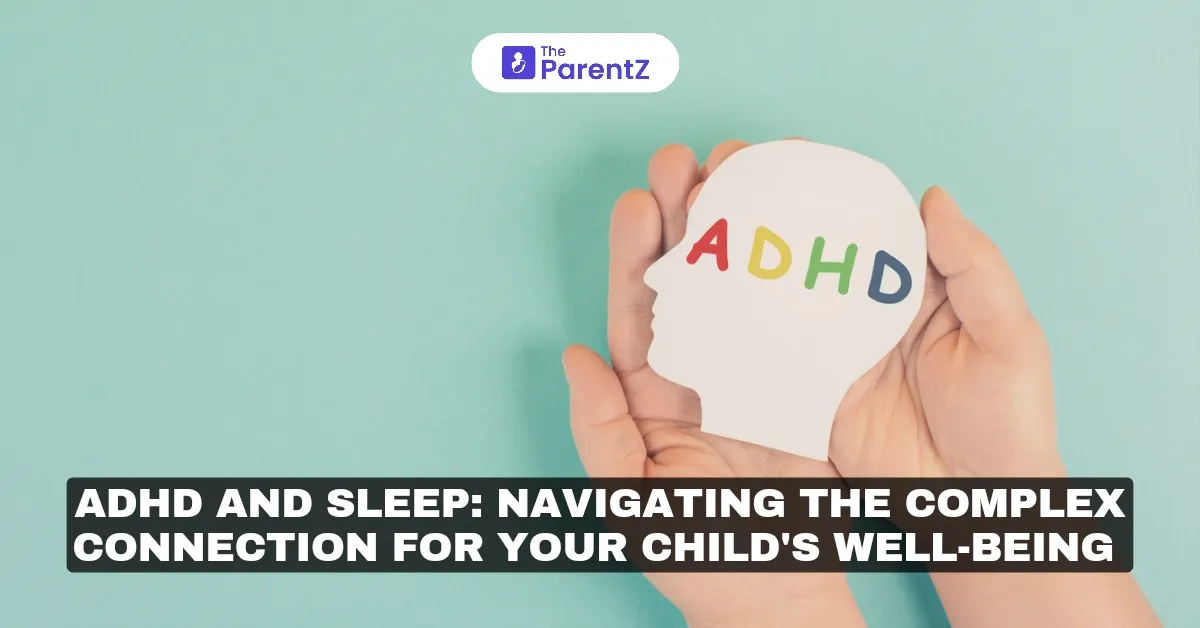If your child has been diagnosed with ADHD, you’ve likely noticed the relationship between their behavior and sleep patterns. When they’re well-rested, the world seems brighter, and challenges become less daunting. Sleep and ADHD share a fascinating and complex relationship that goes far beyond simple restlessness. As a parent, understanding these nuanced connections is the key to supporting your child's overall health, cognitive development, and emotional well-being.
Understanding the ADHD-Sleep Connection
How Does ADHD impact sleep?
ADHD isn't just about attention challenges—it's a neurological condition that fundamentally alters brain chemistry and circadian rhythms. Research reveals that children with ADHD experience unique sleep disruptions that stem from:
- Neurotransmitter Imbalances: The same neurochemical variations that contribute to ADHD symptoms directly influence sleep regulation. Dopamine and norepinephrine, crucial for attention and arousal, also play significant roles in sleep-wake cycles. When these neurotransmitters are dysregulated, sleep becomes a complex challenge.
- Executive Function and Sleep Initiation: Children with ADHD often struggle with "sleep hygiene" due to impaired executive functions. Their brains have difficulty transitioning from active engagement to relaxation, making bedtime a systematic challenge rather than a natural process.
The Bidirectional Relationship
ADHD and sleep problems often coexist, creating a pattern where each condition aggravates the other. Children with ADHD frequently experience difficulties such as:
- Increased Sleep Onset Latency: The time it takes for a child to fall asleep is often longer for those with ADHD.
- Frequent Night Awakenings: Disruptions during the night can lead to fragmented sleep.
- Daytime Sleepiness: Insufficient rest can result in fatigue during the day, worsening ADHD symptoms.
Research indicates that about 70% of children with ADHD face moderate to severe sleep issues, which can include insomnia and sleep-disordered breathing (SDB) conditions like obstructive sleep apnea. These disturbances can lead to behavioral issues, mood swings, and cognitive impairments, making it essential for parents to address them.
Specific Sleep Challenges in ADHD Children
Unlike typical sleep struggles, ADHD-related sleep issues are deeply neurological. Children may experience:
- Delayed sleep phase syndrome
- Increased difficulty falling asleep
- Fragmented and lighter sleep patterns
- Heightened sensory sensitivity during nighttime
ADHD medications, while crucial for daytime functioning, can complicate sleep architecture:
- Stimulant medications might suppress natural sleep onset
- Extended-release formulations can have varying evening impacts
- Individual metabolic differences mean personalized medication management is essential
Practical Strategies for Improving Sleep in Kids with ADHD
Behavioral Interventions
Implementing effective behavioral strategies can significantly improve sleep quality:
- Consistent Bedtime Routine: Establishing a calming pre-sleep routine sends a signal to the body that it's time to wind down. This could include activities like reading or gentle stretching.
- Sleep Hygiene Practices: Ensuring a conducive sleep environment—dark, quiet, and cool—can help promote better sleep. Limit screen time before bed, as blue light can disrupt melatonin production.
- Gradual Sleep Schedule Adjustments: If a child has a delayed bedtime, gradually shifting their bedtime earlier by 15 minutes each night can help reset their internal clock.
Medical Interventions
For some children, medical interventions may be necessary:
- Melatonin Supplements: It is a hormone that regulates sleep-wake cycles. Administering melatonin supplements in low doses (0.5 to 3 mg) about an hour before bedtime can help some children fall asleep more easily.
- Bright Light Therapy: Bright light in the morning helps regulate circadian rhythms and enhance overall sleep quality for children with ADHD.
- Cognitive Behavioral Therapy for Insomnia (CBT-I): This helps address thoughts and behaviors that lead to insomnia, making it a valuable tool for managing sleep problems in children with ADHD.
Medication Management
If stimulant medications are causing sleep issues:
- Timing Adjustments: Parents should consult healthcare providers about adjusting medication timing or dosage. Taking medications earlier in the day or switching to non-stimulant options may alleviate nighttime restlessness.
- Alternative Medications: Some clinicians may prescribe non-habit-forming medications like trazodone or mirtazapine for their sedative effects, although these should be used cautiously due to potential side effects.
When to Seek Immediate Professional Consultation
- Persistent sleep disturbances lasting over a month
- Significant daytime functioning impairment
- Emergence of co-occurring anxiety or mood disorders
- Medication side effects impacting sleep quality
Conclusion
Understanding the complex relationship between ADHD and sleep is vital for parents aiming to support their children's well-being. By recognizing the signs of sleep disturbances and implementing both behavioral strategies and medical interventions, when necessary, parents can significantly enhance their child's quality of life. Understanding that sleep challenges are not behavioral failures, but neurological variations is crucial. Your compassion, patience, and strategic support can transform your child's sleep experience.
Disclaimer: Always consult healthcare professionals for personalized medical advice tailored to your child's specific needs.








Be the first one to comment on this story.